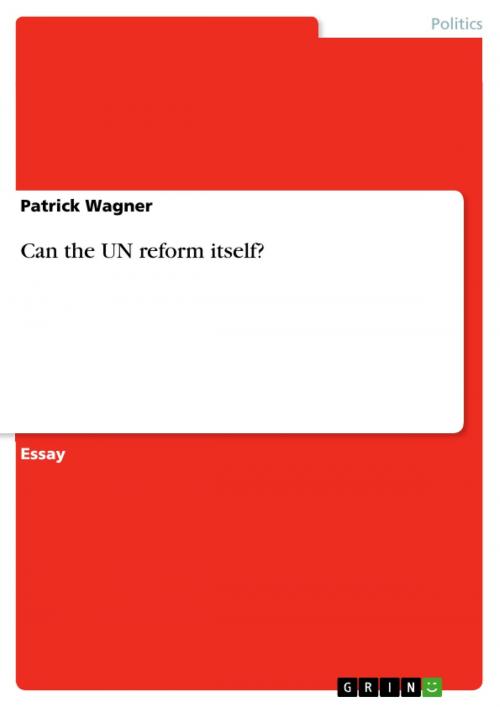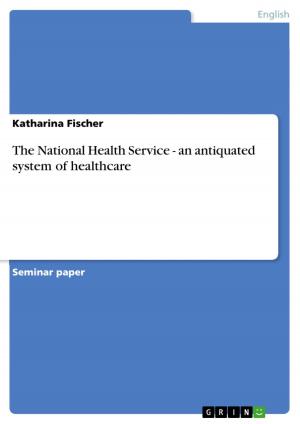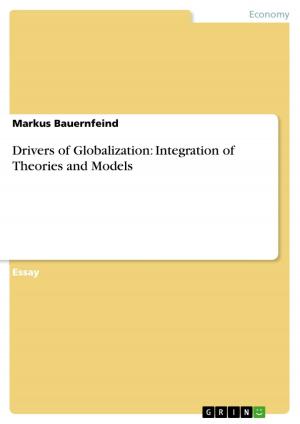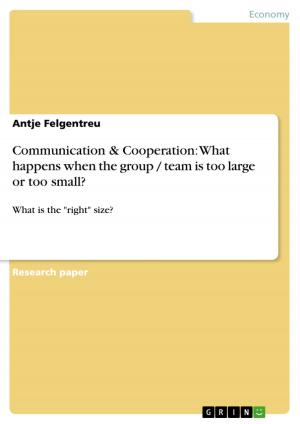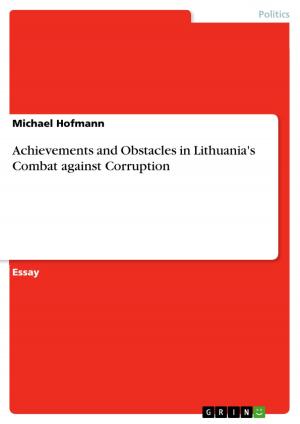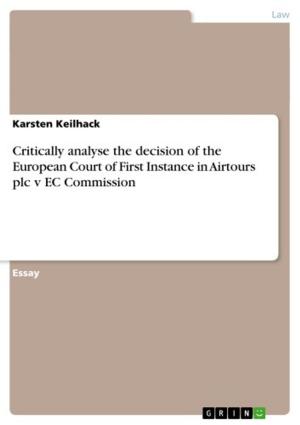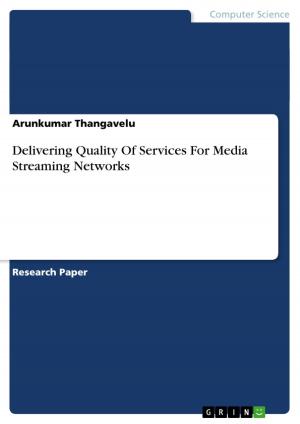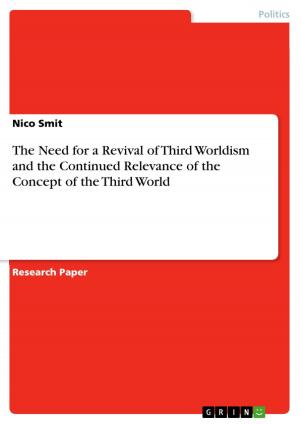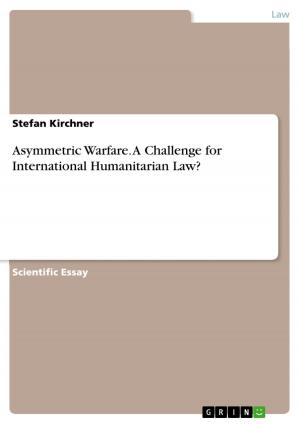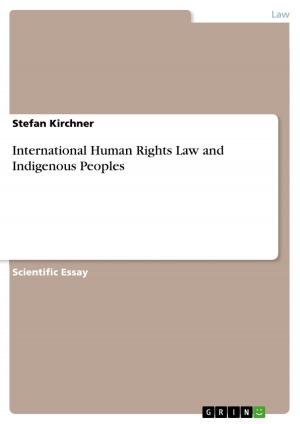Can the UN reform itself?
Nonfiction, Social & Cultural Studies, Political Science, International, International Relations| Author: | Patrick Wagner | ISBN: | 9783638231954 |
| Publisher: | GRIN Publishing | Publication: | November 18, 2003 |
| Imprint: | GRIN Publishing | Language: | English |
| Author: | Patrick Wagner |
| ISBN: | 9783638231954 |
| Publisher: | GRIN Publishing |
| Publication: | November 18, 2003 |
| Imprint: | GRIN Publishing |
| Language: | English |
Essay from the year 2002 in the subject Politics - International Politics - Topic: International Organisations, grade: 1 (A), University of Kent (Department of Politics and International Relations), 7 entries in the bibliography, language: English, abstract: The UN has seen several reforms since its foundation in 1945. A constantly changing political situation and new areas for UN intervention and help have for a long time made reforms necessary. 'Reform of the United Nations has been under discussion for decades.' However, the need for reforms is now greater than ever. The end of the Cold War has marked the beginning of a new world order, and also the beginning of a new era for the UN. A whole range of new problems and issues have appeared on its agenda: environmental problems, gender issues, refugees and international terrorism to name but a few. In addition to these new and demanding tasks, the UN still has to deal with ordinary economical development, peacekeeping and all the rest of its traditional tasks. The UN simply cannot carry out these various tasks effectively if its financial and managerial structure is not fundamentally reformed. Even if in the future a common view on the role of the UN can be found, will a global organisation like the UN not always need to be changed? Can there ever be a UN that meets all demands and is 'finished'? Obviously, the world has changed a lot since the foundation of the UN in 1945, especially after the end of the Cold War, now making the need for reform very immediate. Yet, politics and international relations are not static and subject to change at any time. It seems to be inevitable, that the UN as a reflection of the world's political situation will always be in need for adjustment and reform.
Essay from the year 2002 in the subject Politics - International Politics - Topic: International Organisations, grade: 1 (A), University of Kent (Department of Politics and International Relations), 7 entries in the bibliography, language: English, abstract: The UN has seen several reforms since its foundation in 1945. A constantly changing political situation and new areas for UN intervention and help have for a long time made reforms necessary. 'Reform of the United Nations has been under discussion for decades.' However, the need for reforms is now greater than ever. The end of the Cold War has marked the beginning of a new world order, and also the beginning of a new era for the UN. A whole range of new problems and issues have appeared on its agenda: environmental problems, gender issues, refugees and international terrorism to name but a few. In addition to these new and demanding tasks, the UN still has to deal with ordinary economical development, peacekeeping and all the rest of its traditional tasks. The UN simply cannot carry out these various tasks effectively if its financial and managerial structure is not fundamentally reformed. Even if in the future a common view on the role of the UN can be found, will a global organisation like the UN not always need to be changed? Can there ever be a UN that meets all demands and is 'finished'? Obviously, the world has changed a lot since the foundation of the UN in 1945, especially after the end of the Cold War, now making the need for reform very immediate. Yet, politics and international relations are not static and subject to change at any time. It seems to be inevitable, that the UN as a reflection of the world's political situation will always be in need for adjustment and reform.
